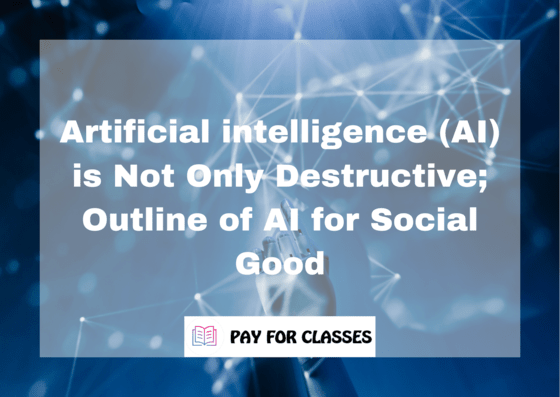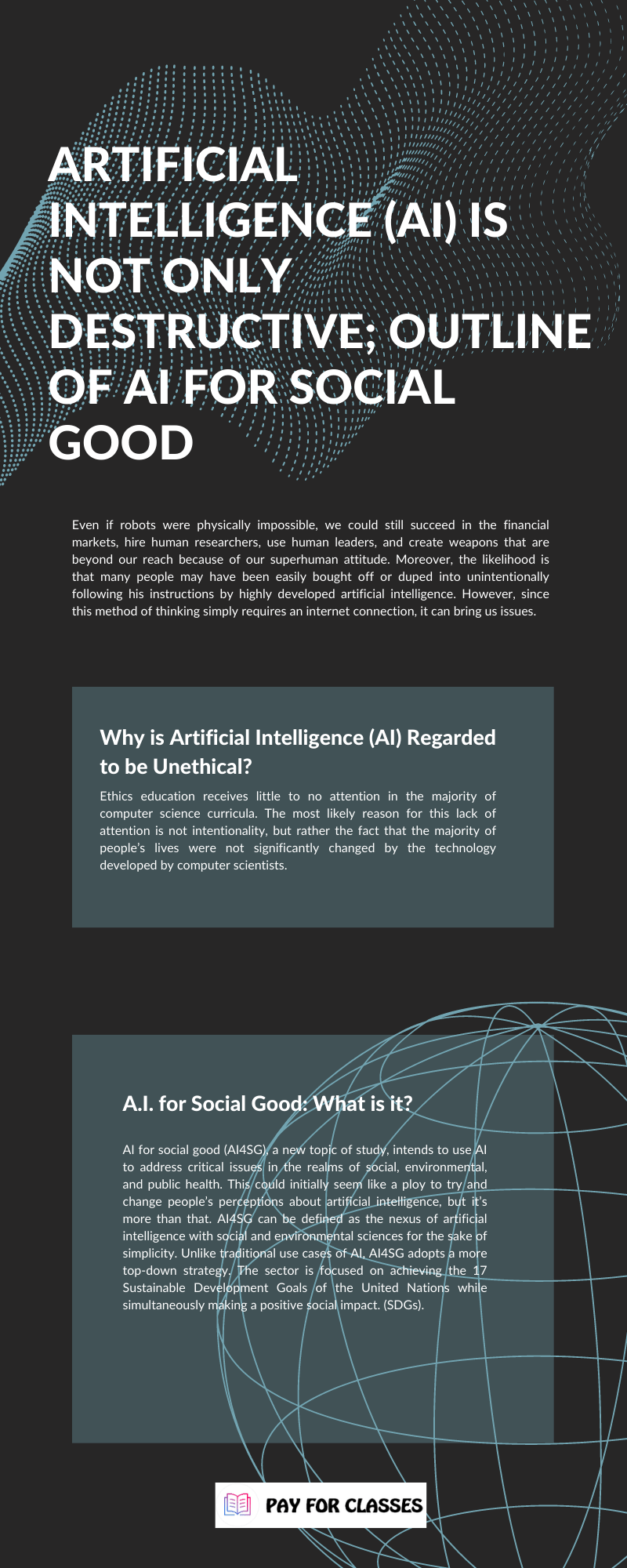
Even if robots were physically impossible, we could still succeed in the financial markets, hire human researchers, use human leaders, and create weapons that are beyond our reach because of our superhuman attitude. Moreover, the likelihood is that many people may have been easily bought off or duped into unintentionally following his instructions by highly developed artificial intelligence. However, since this method of thinking simply requires an internet connection, it can bring us issues.
Even though it is improbable that robots will cause harm to people, it is feasible that if AI advances to the point where it surpasses human intellect, machines may make mistakes when learning and attempt to achieve goals without taking other factors into account. Either humans will be destroyed and exterminated by computers, or they will use their intelligence to address pressing issues like famine and climate change and prevent human mortality. Microsoft artificial intelligence improves the ability of humans and machines to interact by enabling natural interactions. So here, Pay for Classes has composed a blog to understand that artificial intelligence is not only destructive but also helpful for social good.
Also, the advancements in technology have always worked to make your academic experiences smooth. So now, even if you have issues like, I want someone to take my online class for me on my behalf, it can be solved with technology. Just let the internet know your problem and you will find a plethora of solutions.
Why is Artificial Intelligence (AI) Regarded to be Unethical?
Artificial intelligence is a subfield of computer science. Computer scientists have regularly suffered for failing to take potential, ethical, and societal repercussions of their research into account. Moreover, the deep learning revolution and the information explosion have increased the impact and influence of computing technology on society. Furthermore, this criticism has been increasingly fervent. Contrarily, despite restrictions on its research technique, computer science has largely remained unaffected. Ethics education receives little to no attention in the majority of computer science curricula. The most likely reason for this lack of attention is not intentionality, but rather the fact that the majority of people’s lives were not significantly changed by the technology developed by computer scientists.
That’s not the situation anymore.
Computer scientists now work with large datasets in the following fields:
- Medicine, where they develop algorithms to detect and diagnose things like cancer. Also, model the spread of disease.
- Social media, where they develop enhanced recommendation systems. Also, some other algorithms to increase revenue through enhanced consumer engagement.
- Finance, where they develop algorithms to identify who will receive loans. Or which businesses will be profitable.
While the potential impact of such things on society has significantly expanded, there are now very few institutional constraints in place to compel ethical behavior in this field of artificial intelligence.
In addition to this, if you are a student facing issues while taking your online classes, then you can contact us and hire a professional for a top-notch assistance. For example, if you are wondering, where should go to ask someone to take my online biology class for me, then you should contact us without thinking twice.
Also Read: How Rising Inflation Affects the Global Economy?

A.I. for Social Good: What is it?
AI for social good (AI4SG), a new topic of study. It intends to use AI to address critical issues in the realms of social, environmental, and public health. This could initially seem like a ploy to try and change people’s perceptions about artificial intelligence, but it’s more than that. AI4SG can be defined as the nexus of artificial intelligence with social and environmental sciences for the sake of simplicity. Unlike traditional use cases of AI, AI4SG adopts a more top-down strategy. The sector is focused on achieving the 17 Sustainable Development Goals of the United Nations while simultaneously making a positive social impact. (SDGs).
We might be more interested in modeling the social networks of homeless people to stop the spread of HIV. Because people are disproportionately affected by the disease, rather than standard artificial intelligence applications like text translation. Despite the potential for beneficial social consequences, text translation is frequently not included in AI4SG. One may argue that most business intelligence tools, including recommendation engines and inventory management, are equivalent. Many AI4SG applications use game-theoretic techniques, which are mathematically characterized as a game between an agent and an adversary. Since they need the deployment of several agents and adhere to the reinforcement learning paradigm, AI models based on game theory are frequently referred to as multi-agent models.
The following are some requirements for applications to AI4SG:
• Importance of the issue. Despite its significance, the topic of societal impact has not yet received adequate attention from the AI community.
• Freshness of thought. Introduces a novel model or significantly enhances the existing models, algorithms, and/or data processing methods.
• Impact’s potential and range on society. There is a high probability that the solution will be used and have a positive social impact.
• The development of advanced AI systems or reliance on them. Introduces cutting-edge AI methods that are original or suitable for the current situation.
Also, you can contact us for academic assistance such as when you find yourself thinking, who can take my online algebra class for me?
Conclusion
We must embrace and make use of artificial intelligence’s potential to improve everyone’s standard of living now. It is an exciting and dangerous time right now. We should behave responsibly. And put limits in place that are analogous to those found in the social sciences. Also, the medical profession in order to help control and bring answers to the field of computer technology and its growing youth.
Frequently Asked Questions
Question: 1 Is artificial intelligence useful to society?
Answer: 1 AI can speed up and robotic social processes like decision-making or workplace productivity. AI enables the identification and resolution of issues that people might not be able to see or solve on their own.
Question: 2 What aspect of artificial intelligence is more harmful or useful?
Answer: 2 An AI program has the ability to function both in harmony and regularly. The twin task will always be completed by it at the same standard. As a result, they are significantly more valuable as employees than those who carry out same activities. Moreover, there is rise in safety, low error, and lower free time.
